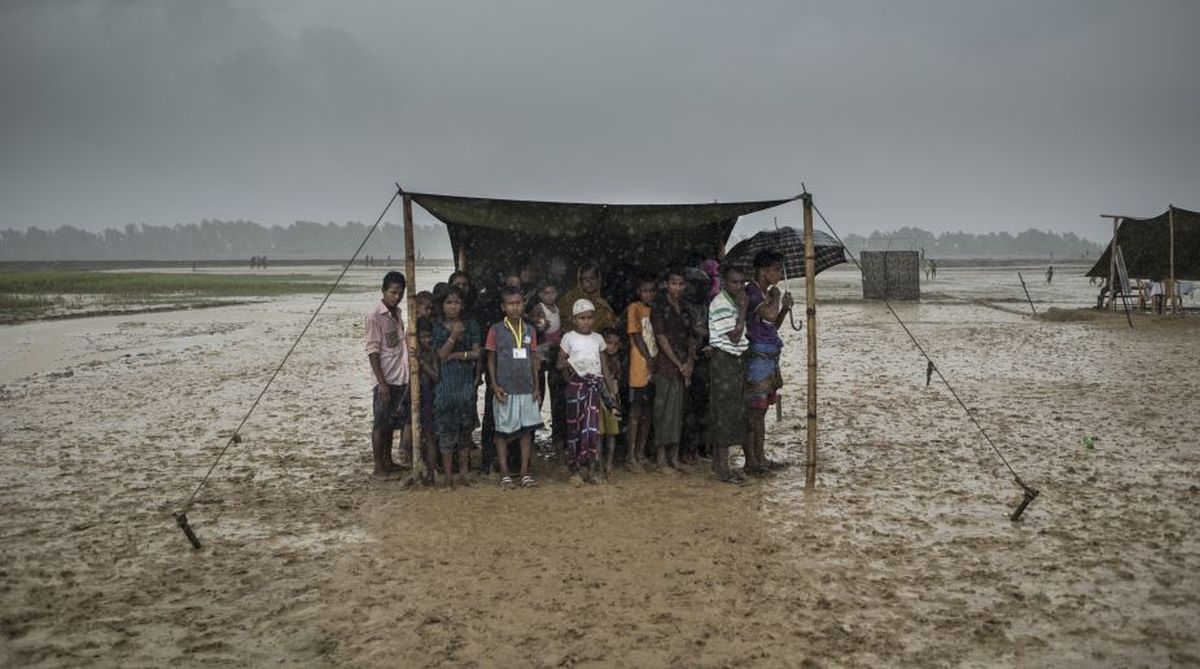WFP says three personnel killed in Sudan
The World Food Programme (WFP) on Friday announced that three of its staff members were killed in an aerial bombardment in Sudan, while the Sudanese government pledged to investigate the incident.

A file photo of Rohingya refugees taking shelter from rain at the Nayapara refugee camp in Bangladesh's Ukhia district in October 2017. (Photo: AFP)
While the Memorandum of Understanding between the United Nations and Myanmar on the repatriation of Rohingyas does raise hope, the risk that the deal may not readily translate to relief for the nowhere men is dangerously real. Tangible benefits remain ever so elusive; the fundamental entitlement of citizenship or freedom of movement throughout the country has not been guaranteed.
The Rohingyas suffered one of the worst ethnic cleansings in history and were buffeted from shore to shore. Now neither the UN nor the government in Naypidaw have been explicit on the details of the deal except to state that the hundreds of thousands of refugees, now sheltered in Bangladesh, shall be able to return safely and by choice. No less a subject of concern is whether or not conditions in Myanmar are suitably conducive for the refugees.
Advertisement
The ground reality has prompted the UN Secretary-General, Antonio Guterres, to call for an international effort. The democratic world, most particularly the libertarian West, will be expected to pitch in to ensure that the deal fructifies to a humane existence. The provisions are seemingly agreeable to Myanmar, its military, and the Buddhist persecutors of a predominantly Muslim community.
Advertisement
It is difficult to accept that the UN does not harbour its reservations, however. The key issues, notably citizenship and the rights of the Rohingyas remain ever so contentious. Of course, the MoU states that “returnees will enjoy the same freedom of movement as all other Myanmar nationals in the state of Rakhine, in conformity with existing laws and regulations”.
That saccharine assurance must be tempered by reality ~ freedom of movement, an essential human attribute, has not been guaranteed beyond the borders of Rakhine, bordering Bangladesh. Nor does the deal address the laws and regulations that now prevent the Rohingyas from travelling freely. In a word, the agreement, purportedly with a humanitarian objective and concluded after ruthless persecution and ejection, has failed to ensure the basic rights for the Rohingyas.
An estimated 700,000 have fled a military crackdown, which the Western countries have condemned as “ethnic cleansing”. Small wonder that Amnesty International has been spot on while summing up the privation of the Rohingyas in the context of the agreement ~ “As it stands, returning Rohingyas to Rakhine means returning them to an apartheid state, a place where they can’t move around freely, and have to struggle to access schools, hospitals, and places they rely on for work.” It was only to be expected that the Rohingya leaders would reject the agreement, saying that it does not address their concerns and will not help in the repatriation of the refugees.
Advertisement